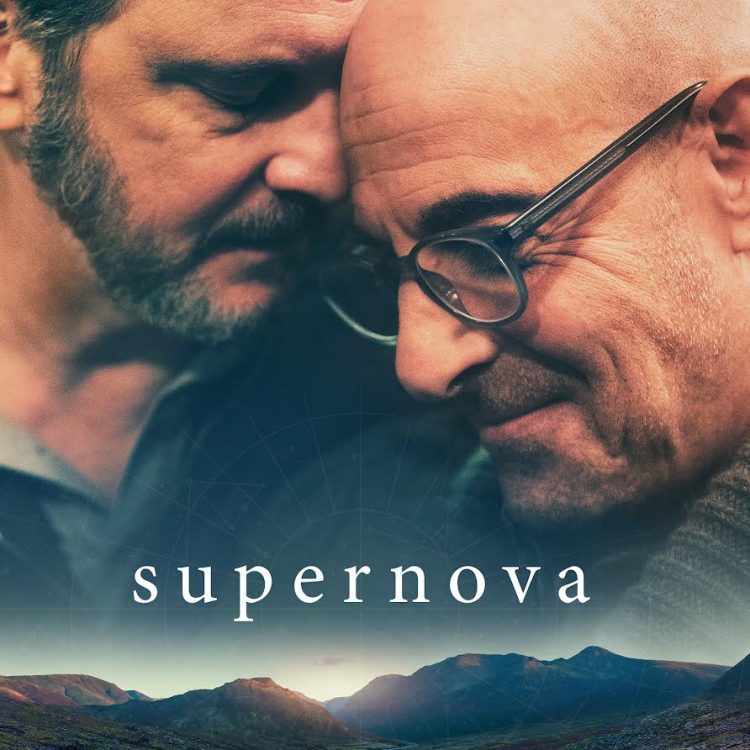In the picture

Supernova
published on 18 August 2021
Do you know what a supernova is? It is a phenomenon that results from the implosion of a star. When it goes out, it produces an intense light and then what seems to be a sign of birth is actually an astral swan song. With this poetic title, British actor Harry MCqueen (Hinterland, 2015) signs his second film as director.
Sam (Colin Firth) and Tusker (Stanley Tucci) have been a couple for twenty years. They embark on a journey across England, the final destination being a family reunion at a lakeside house. The trip is an opportunity for the two men to open up to each other and to confront Tusker’s early onset dementia.
Supernova is a road trip film that we would love to watch with a blanket. The bucolic images of the grey and misty English countryside are in themselves an invitation to escape, if only in reverie. This is a delicate film that treats dementia with humility and authenticity. It is the disease that is at the heart of the film, the way everyone copes with it, stoically or rebelliously; the way it changes the dynamics of a family and the impact it has on their daily lives, but also what touches the deepest part of us, fear and powerlessness in the face of the immutability of our limits. MCqueen films existence and the way the degenerative disease erodes it and gradually invades it, revealing itself in the banalities of everyday life. It is precisely in this banality that all the film’s emotional potential crystallises, as we measure the full dimension of dementia in its smallest gestures. MCqueen’s mastery and strength is to show, without voyeurism; to have avoided capitalising on an overdose of superficial drama. He knows how to film their tragic nature in things, without having to invent or accentuate it. The constant transitions between long shots in which the human depths are scrutinised and long shots in which their contingency is emphasised also have a symbolic meaning.
What we liked most about this work is also the way in which it no longer makes homosexuality its subject. Until recently, many mainstream or more intimate films tended to focus solely on the homosexuality of the characters, erasing all other dimensions of them. Perhaps the era of “normalisation” has finally arrived, in which it is no longer necessarily political to make a gay film. Should we be happy about the “normalisation” of homosexuality, at least in cinema? However, there is still a long way to go before all other members of the LGBTQIA+ community enjoy such visibility, stripped of their mystical or alien aura. Visibility is the first step towards rights that have not yet been won for all LGBTQIA+ people, especially when they are racialised and/or precarious.
Raïssa for the RainbowHouse
Trailer: https://www.youtube.com/watch?v=GEmzbiYg7wg
Infos : https://www.cineart.be/fr/films/supernova
Cinémas : https://www.cinenews.be/fr/films/supernova/seances/
